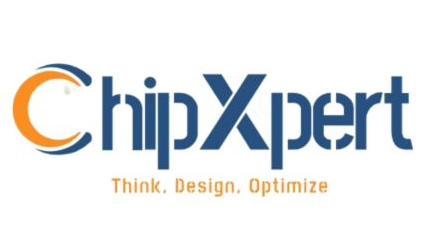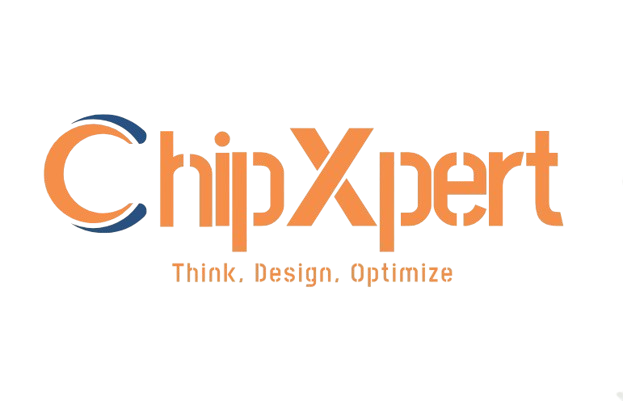VLSI Design Verification Internship
Acquire hands-on project experience to become industry-ready.
Acquire hands-on project experience to become industry-ready.
22nd May 2025
45 Days
Online Classes
Our Flexible e-Internship in VLSI Design and Verification is an industry-oriented, 6-WEEK(45 Days online program tailored for 4th-year B.Tech ECE students, Trained Freshers and Working Professionals. This program provides a perfect blend of self-paced learning, scheduled doubt-clearing sessions, and hands-on project work, giving students the flexibility they need while equipping them with real-world skills.

Course Fee
No Cost EMI Option
Pay After Placement Option
Online/Hybrid Internship
Boolean algebra, logic gates, and combinational circuits.
Flip-flops, registers, counters, and sequential logic.
FSM basics (Mealy & Moore) and state encoding techniques.
Hands-on lab: Design & simulate basic digital circuits.
Introduction to Verilog, module structures, and data types.
FSM implementation and debugging in Verilog.
Timing concepts: setup/hold time, metastability, CDC.
Hands-on lab: Implement & simulate FSM and basic RTL designs.
Introduction to SystemVerilog: Data types, OOP Concepts, and Interfaces.
Assertions (SVA) & Functional Coverage for Verification Efficiency.
Testbench Architecture: Transaction-Based Modeling & UVM Basics.
Lab Task: Implement SystemVerilog Assertions & Coverage in a testbench.
Introduction to HDL, RTL vs. Behavioral Coding, and ASIC/FPGA Flow.
Verilog constructs: Data types, operators, and procedural blocks.
Combinational & Sequential Circuits (MUX, FSM, Counters, Registers).
Lab Task: Implement and simulate basic logic circuits in Verilog.
Tasks, Functions, Generate Statements, and Parameterized Designs.
Finite State Machine (FSM) Design & Optimization in Verilog.
Testbench Development: Stimulus Generation, Monitors, and Assertions.
Lab Task: Write a self-checking testbench for a basic digital circuit
Verification methodologies: Directed, Random, and Constraint-Based Testing.
Low-Power Design Verification (Clock Gating, Power Gating).
Industry-standard Verification Flow & Debugging Techniques.
Final Project: Complete an RTL design & verification cycle with reports.
Basics of Verilog: Data types, procedural/continuous assignments.
Writing combinational & sequential circuits for verification.
Testbench basics: Stimulus generation, initial & always blocks.
Lab Task: Write and simulate testbenches for logic gates & flip-flops.
Writing modular testbenches with tasks and functions.
Creating self-checking testbenches withif,case, and loops.
Debugging techniques: Waveform analysis & error detection.
Lab Task: Develop a self-checking testbench for an FSM.
Testbench components: Drivers, Monitors, and Scoreboards.
Assertions (SVA) and functional coverage techniques.
File I/O and memory modeling for verification.
Lab Task: Implement assertions and functional coverage in a testbench.
Verification methodologies: Directed vs. random testing.
Debugging timing issues & race conditions.
Industry case study: Verifying a simple CPU or protocol
Final Project: Verify a real-world RTL design & generate a verification report.
Introduction to UART protocol: TX, RX, baud rate, framing, and parity.
Reviewing the UART RTL design and defining verification requirements.
Setting up the simulation environment and writing a basic testbench.
Lab Task: Develop a simple UART transmitter and receiver testbench.
Creating directed and constrained-random test scenarios.
Implementing transaction-level stimulus (packets, error injection).
Developing monitors and scoreboards for self-checking verification.
Lab Task: Write a testbench to verify UART frame formats and error cases.
Implementing SystemVerilog Assertions (SVA) for protocol checks.
Writing functional coverage to measure verification completeness.
Debugging timing violations and race conditions.
Lab Task: Add functional coverage and assertions to the testbench.
Running simulations, debugging failures, and optimizing the testbench.
Generating verification reports with coverage analysis.
Industry best practices: Regression testing and reusable testbenches.
Final Project Submission: Complete UART verification and submit a final report.
✅ Lab Access: Available throughout the course for hands-on practice.
🏆 Certification: Issued upon successful completion of the project and final review.
Sample Course Certificate 




We provide placement assistance by arranging interview opportunities with hiring companies. This is complimentary service from ChipXpert, without charging any extra amount for this. We charge only for our training, but not for placements.
We provide placement support until candidate gets job. To Ensure Successful Placements, We provide added support including mentorship, fundamentals classes, soft skills training, mock interviews Etc.
Salary Range For Freshers Is From 3- 4 Lakhs Per Annum In Service Companies. Salaries In Product/MNC Companies Can Range Between 7 To 16 Lakhs.
Though 3-4 LPA appears similar to software salaries, your real growth comes after 3 years. First 2-3 years are to be considered as career building phase, to learn as much as you can and do not compare with others / IT salaries. Your knowledge will be your power and your career / salary growth from 4th year onwards depends on your talent/knowledge.
Each year many companies visit ChipXpert for recruiting the various entry level positions because of the quality training that we offer.
We use 28nm,14nm libraries for labs, projects.
We use the latest and genuine versions of Synopsys Tools for our courses. please check course pages, for the list of tools used for that respective course. We provide a dedicated tool license for every learner during the lab/project work.
This is the biggest advantage with ChipEdge courses, as quality and standard EDA/VLSI tools are important for any VLSI course. And these tools are typically very costly ranging from $50,000 to $200,000 per license per year. Many service companies cannot afford these tools. Thanks to the EDA/Tool companies for giving these tools at subsidized & affordable rates to training companies, so that engineers can get trained on these tools.
We do have installment options for some courses. EMI option is available through our partner organizations, who provide loans for training programs. Please check with our learning advisors.

